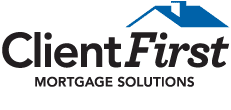With mortgage rates likely about as low as they can go, it may seem like a sure bet to lock into a fixed rate. But as a homeowner you should focus less on rates and more on the bigger issues of affordability, eligibility and most importantly, maintaining good credit.
A fixed mortgage is locked in for a set term at a set rate, and offers no flexibility. A Variable mortgage, fluctuates with the market index rate, which can be beneficial in the long run as low rates leave room for you to potentially get ahead on payments. There are pros and cons to both fixed and variable.
On the fixed side, you know what you’re paying for the next three, four or five years, and you don’t have to worry about the ups and downs of rates. At the same time, being locked in means just that: a hefty penalty that can wipe out any potential equity, defeating the purpose of a low rate in the first place.
On the variable side, there is a risk. Rates can go up, increasing the amount you are required to pay and reducing how much of your payment is actually going toward paying off your mortgage, since you’ll be paying more towards the interest. At the same time, the likelihood of rates skyrocketing in the short term and making your payments unmanageable is extremely low.
So, what to do? Irrespective of whether you choose fixed, variable or even both, the first and most important thing to consider is your credit. Many of these, all time low mortgage rates being offered right now, look amazing, but eligibility is a different ballgame. Unless you are the small percentage of the population that has unlimited resources and perfect credit score, you are most likely ineligible for these eye-catching interest rates.
A simple credit check can uncover small things like a missed car payment, slow payments and being over your credit card limit that will impact your eligibility. This is key in determining what type of mortgage you can afford to carry.
The second, equally important thing to do is determine what you are eligible for, based on your income and full financial picture. How do you do this? Get pre-approved! Know what you can afford (and at what rate) in advance before you go hunting for your dream home or condo. Once that’s done, you can decide what the best option is for you – fixed or variable – with the help of your mortgage broker.
A variable-rate mortgage can actually allow you to pay off your mortgage faster. If rates go down, you can make pre-payments on your mortgage during the months that your interest is low (pay a little extra) and lessen the amortization period (the amount of time it takes to pay off your mortgage). Also, in the event something unexpected happens – you need additional cash or, worst-case scenario, you find you can no longer afford your home – variable rates have less of a penalty when breaking your mortgage.
Beyond the seemingly perennial debate, the most important factor of all is, that you understand your financial situation and the options available. Your mortgage is not separate from your other finances; it is all one big picture.
Getting pre-approved and doing your research before locking into any mortgage, fixed or variable, is also key. Like a regular doctor’s visit, look to connect regularly with your mortgage broker, who can help guide you on the best path to home ownership.
Original article: www.huffingtonpost.ca


